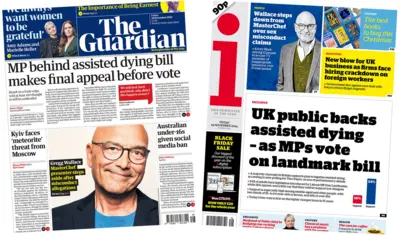We've updated our Privacy and Cookies Policy
We've made some important changes to our Privacy and Cookies Policy and we want you to know what this means for you and your data.
Greek Bail-out II - the backlash
Image source, AFP
- Author, Gavin Hewitt
- Role, Europe editor
The sequel is due out at the end of June. Acropolis Now returns, with the stakes even higher. It sets a powerful European elite against the old Greek enemy - chaos.
So the ground is being prepared for a second significant Greek bail-out.
It was not by chance that Chancellor Angela Merkel devoted so much time to discussing the Greek crisis with President Obama in Washington. She wanted the Americans on-side and, in particular, she wanted President Obama's authority standing behind a second Greek bail-out. She needs that to help with sceptical German voters back home.
President Obama said "we think it would be disastrous for us to see an uncontrolled spiral and default in Europe, because that would trigger a whole range of other events."
At one point he raised the stakes even higher. Greece could not be allowed to "put global economic recovery at risk". So the message to those in Europe who recoil at lending Greece more money is - you're endangering the global economy. It is a heavy hand being played.
Many economists, of course, disagree. They say the exposure of German and French banks to Greek debt is manageable and they deny that a default would put at risk the entire European banking system.
Certainly there would be disruption. The Greek banks would be in trouble. The Republic of Ireland and Portugal may be tempted down the same route. And in the end it is the fear of the unknown that is holding sway.
The president went on to say "I'm confident that Germany's leadership... will help us arrive at a path for Greece to return to growth, for this debt to become more manageable."
Almost no-one believes Greece's debt can be managed, but I will return to that later.
Insolvency threat
Even while Ms Merkel was getting the words she wanted from the White House, her finance minister was openly pitching that Greece needed fresh aid. Wolfgang Schaeuble, an old-style European integrationist, said "we are facing the first risk of the first unco-ordinated state insolvency within the eurozone."
The EU's Monetary Affairs Commissioner Olli Rehn yesterday was pepping up MEPs for the great eurozone drama that lies ahead.
Voters across Europe are being prepared, drip by drip, for the fact that Greece will probably need another 100bn euros (ВЈ89bn; $146bn).
Much, however, remains to be settled.
The IMF wants the EU to go much further in guaranteeing funding for Greece next year before it releases new funds.
Many countries still want bondholders (private investors) to take some of the heavy-lifting, but - and herein lies the rub - as long as any easing of the terms is voluntary. It will be asked - perhaps by the credit ratings agencies - why would anyone voluntarily not want their money to be paid back in full or on time? But debt restructuring is off the official agenda.
Then there are the internal politics in Greece itself. Prime Minister George Papandreou is in the fight of his life. He is proposing along with a sell-off of state assets another 6bn euros in spending cuts. His own Pasok party is fracturing over this. Many MPs are losing faith in austerity.
On the streets there is new energy with protesters. Their ranks are being swelled by those who fear losing their state job at a time of rising unemployment.
The cabinet meeting, discussing the government's plan, has already lasted ten hours. There have even been suggestions that the package might be put to the Greek people in a referendum. It would be a bold move to consult the people.
In the end fear will probably win. The can will be kicked down the road. Very few people believe that Greece can find sufficient growth to slim down its mountain of debt. Sooner or later there will be a default.
What most European leaders are doing is playing for time. If Greece defaults in three or four years' time then Europe's banks may be stronger and healthier. The Institute of International Finance said a second bail-out "will buy some time but will still leave Greece's debt sustainability probably unresolved".
Top Stories
More to explore
Most read
Content is not available








